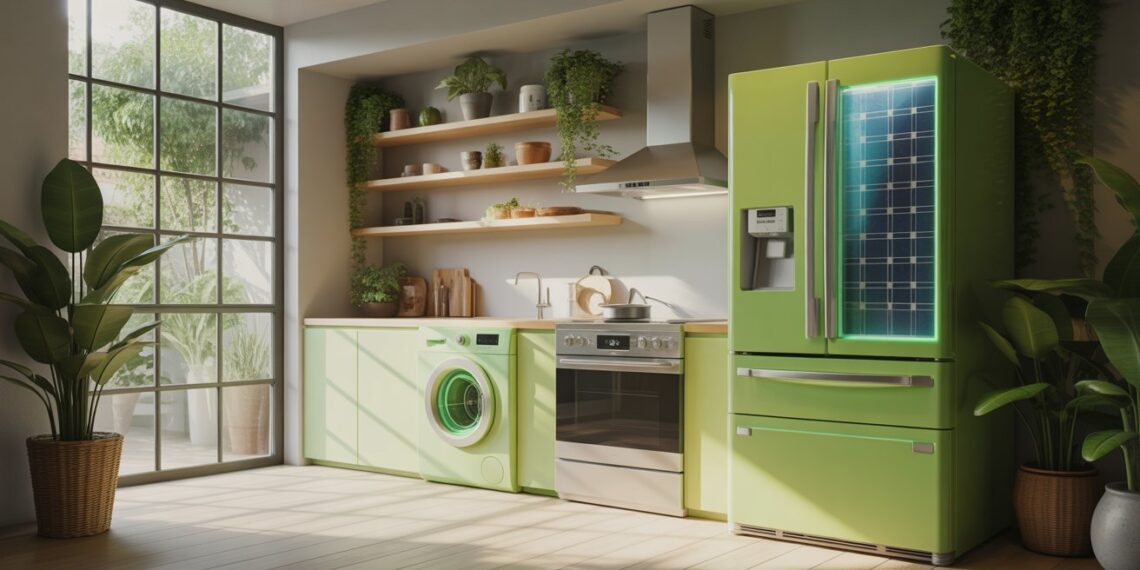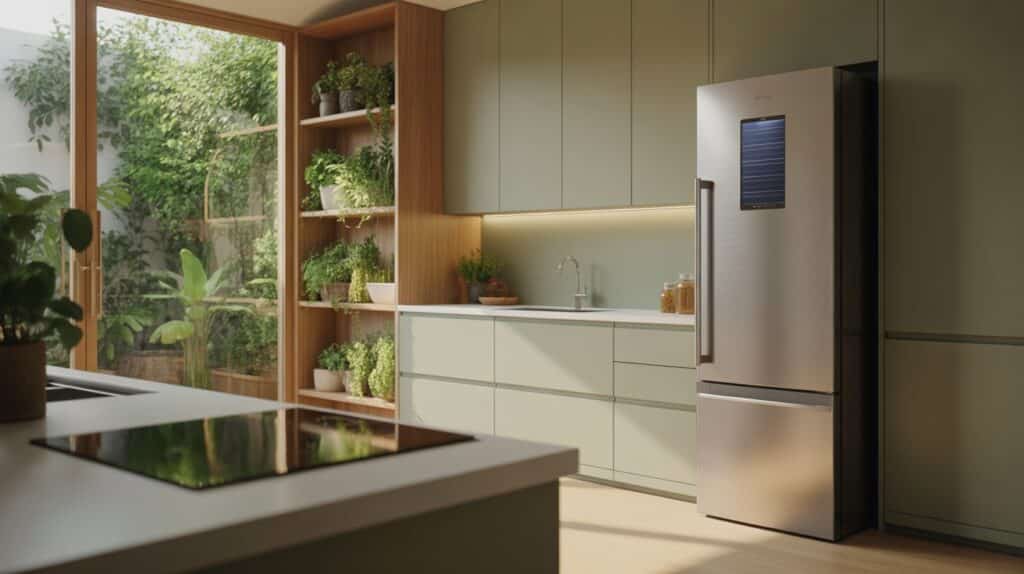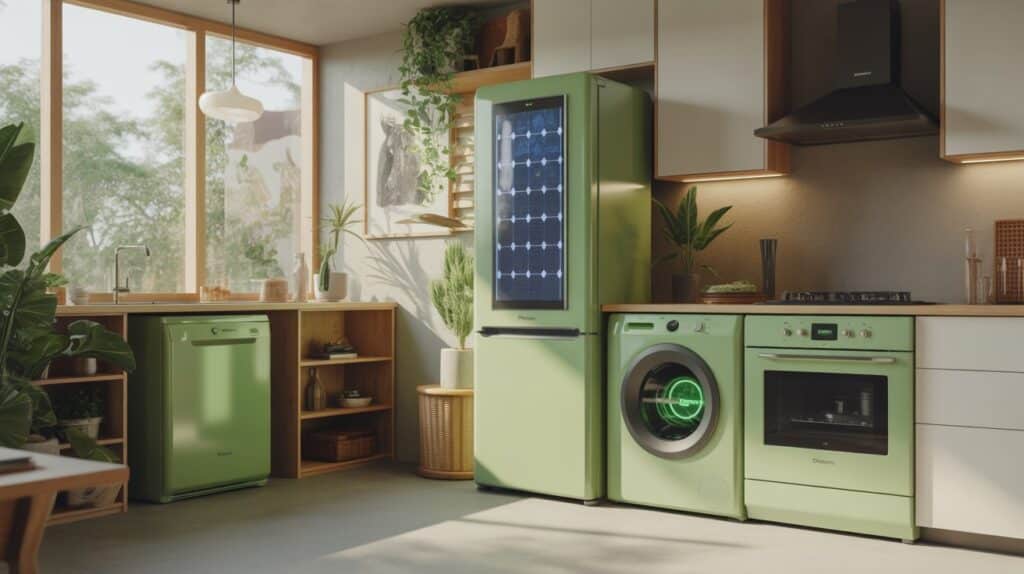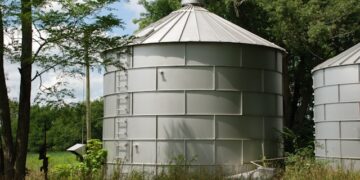The demand for sustainable living has never been higher. Rising energy costs, climate concerns, and consumer awareness are pushing households to choose smarter, greener solutions. In 2025, eco-friendly home appliances are no longer a luxury—they are a necessity. From energy-efficient refrigerators to smart washing machines, modern appliances not only reduce your environmental footprint but also save you money over time. In this article, we will explore the Best Eco-Friendly Home Appliances in 2025, examining their features, benefits, and how they help create a more sustainable home. We’ll also discuss the long-term cost benefits, lifecycle impacts, and practical tips for choosing the right appliance for your household.
What Makes an Appliance Eco-Friendly?
Before diving into product categories, it is essential to understand what makes an appliance sustainable. Key factors include:
- Energy Efficiency: Appliances that consume less electricity, often measured by ENERGY STAR ratings or equivalent certifications. In 2025, new metrics include AI-driven energy optimization and compliance with stricter global standards.
- Water Conservation: Particularly important for dishwashers and washing machines, where eco-cycles and soil sensors minimize waste.
- Eco-Friendly Materials: The use of recyclable, non-toxic, and durable components ensures that appliances create less waste during and after their life cycle.
- Lifecycle Impact: Longevity, repairability, and recyclability matter more than ever. Consumers prefer appliances with modular parts and easy service options.
- Smart Technology: IoT-enabled features that optimize energy usage based on real-time demand, helping households sync appliances with renewable energy sources.
Best Eco-Friendly Home Appliances in 2025: Category Breakdown
1. Energy-Efficient Refrigerators
Refrigerators are among the biggest energy consumers in a household. Modern eco-friendly models use advanced compressors, better insulation, and non-toxic refrigerants.
- Features to Look For: Inverter compressors, R600a refrigerant, AI-powered temperature control, ENERGY STAR “Most Efficient” label.
- Top Picks: Brands like LG, Samsung, and Bosch have released refrigerators that consume up to 40% less energy than models from just five years ago. Some models even integrate with solar panels to maximize renewable energy usage.
2. Washing Machines with Water-Saving Technology
Washing machines in 2025 are designed to minimize both energy and water usage. Many models feature AI-driven load detection and eco cycles, reducing waste without compromising cleanliness.
- Features to Look For: Front-loading design, low-water cycles, eco-rinse settings, smart detergent dispensers.
- Top Picks: Whirlpool, Haier, and Electrolux models with smart sensors that reduce water consumption by up to 50% while maintaining high cleaning standards.
3. Induction Cooktops and Ovens
Induction cooktops are increasingly popular due to their efficiency and safety. They heat cookware directly, reducing energy waste compared to gas or electric stoves.
- Features to Look For: Smart power regulation, recyclable materials, automatic shut-off, child safety locks.
- Top Picks: Panasonic and Bosch induction cooktops with real-time power optimization. Advanced ovens now include eco-bake modes that distribute heat evenly at lower energy consumption.
4. Eco-Friendly Dishwashers
Dishwashers in 2025 have advanced filtration systems and eco wash modes that use less water while maintaining performance. Many also feature improved drying systems that cut electricity usage.
- Features to Look For: Soil sensors, half-load wash options, condensation drying systems, self-cleaning filters.
- Top Picks: Miele, Siemens, and KitchenAid eco dishwashers that cut water use to as little as 6 liters per cycle.
5. Air Conditioners with Inverter and Heat Pump Technology
Cooling and heating consume a significant portion of household energy. Inverter ACs with heat pump technology provide efficient year-round performance, reducing bills and emissions.
- Features to Look For: Variable speed compressors, AI temperature optimization, eco refrigerants, smart scheduling.
- Top Picks: Daikin, Mitsubishi, and Gree models that adjust cooling automatically to room conditions, some saving up to 60% energy compared to traditional units.
6. Water Heaters with Heat Pump Systems
Conventional water heaters waste enormous energy. Heat pump water heaters are up to 70% more efficient and can store hot water for extended periods without continuous reheating.
- Features to Look For: Hybrid modes, Wi-Fi connectivity, eco temperature settings, corrosion-resistant tanks.
- Top Picks: Rheem and AO Smith models leading the 2025 market, often recommended for households aiming to lower both bills and carbon footprint.
7. Smart Home Integration Appliances
Appliances that connect to home energy management systems can shift usage to off-peak hours, reducing both bills and carbon footprint.
- Examples: Smart thermostats, AI-enabled power strips, connected ovens, and appliances integrated into solar-powered homes. These systems allow you to automate eco-friendly choices without extra effort.
Cost vs. Savings: Are They Worth It?
Eco-friendly appliances often come with higher upfront costs, but the payback period is typically within 3–5 years. For example:
- A high-efficiency refrigerator may save $150 annually on electricity bills.
- An eco dishwasher can cut water bills by 40% while also saving detergent.
- Smart air conditioners can reduce cooling expenses by 30%, particularly in hot climates.
- Heat pump water heaters can save up to $300 annually in energy costs.
Over the lifespan of the appliance, savings far exceed initial costs, making them a financially sound and environmentally responsible choice.
The Lifecycle Impact: Beyond Energy Use
Truly sustainable appliances go beyond reducing electricity. In 2025, manufacturers focus on:
- Repairability: Modular designs allow consumers to replace individual parts instead of the entire unit.
- Recyclability: Many appliances are built with recyclable metals, plastics, and glass.
- Reduced Carbon in Manufacturing: Leading brands have adopted carbon-neutral or even carbon-negative production processes, using renewable energy in factories.
- Packaging: Eco-friendly packaging reduces plastic waste and promotes compostable alternatives.
Tips for Choosing the Right Appliance
- Check Certifications: Look for ENERGY STAR, EU Energy Label, or equivalent certifications in your country.
- Calculate Lifetime Costs: Consider both purchase price and operating costs when comparing appliances.
- Size Appropriately: Larger appliances often consume more energy. Match the size to your actual household needs.
- Smart Features: Ensure connectivity helps reduce energy consumption, not just add convenience.
- Research Brands: Choose companies with a strong track record in sustainability and repair services.
- Consider Compatibility: If you own renewable energy systems, ensure your new appliance integrates seamlessly.
FAQs
1. Which appliance offers the biggest eco-friendly impact?
Refrigerators and air conditioners typically provide the largest impact due to their continuous energy usage. Replacing older models with 2025’s efficient units can cut household energy consumption dramatically.
2. Are eco-friendly appliances more expensive?
Yes, initially. However, the long-term savings in electricity and water bills, combined with durability and fewer repairs, make them cost-effective.
3. How can I maximize efficiency after buying?
Follow manufacturer maintenance guidelines, use eco modes, clean filters regularly, and avoid overloading appliances like washers and dishwashers.
4. Do eco-friendly appliances perform as well as traditional ones?
Modern eco-friendly appliances are designed to match or even exceed the performance of conventional models while significantly reducing consumption.
5. Can these appliances integrate with renewable energy systems?
Yes. Many 2025 models are designed to sync with solar panels, smart grids, and home energy storage systems, further reducing reliance on fossil fuels.
6. How long do eco-friendly appliances last?
Most eco-friendly appliances are built with durability in mind. On average, they last between 10 to 15 years, provided they are well-maintained.
7. Are rebates or incentives available in 2025?
Many regions now provide tax credits, rebates, or subsidies for eco-friendly appliances, encouraging households to adopt sustainable technologies.
Conclusion
The Best Eco-Friendly Home Appliances in 2025 are not just about saving energy—they represent a shift toward smarter, more sustainable living. From refrigerators to water heaters, today’s appliances combine performance, innovation, and responsibility. By investing in these technologies, you are not only lowering your household costs but also contributing to a greener planet. When choosing your next upgrade, consider both immediate needs and long-term sustainability goals. The right appliance can transform your home into a model of modern, eco-friendly living.
If you are ready to make the switch, start by upgrading the appliances that use the most energy in your household—such as refrigerators, air conditioners, or water heaters. Over time, transitioning to eco-friendly alternatives across all categories will make your home more efficient, comfortable, and future-ready.











